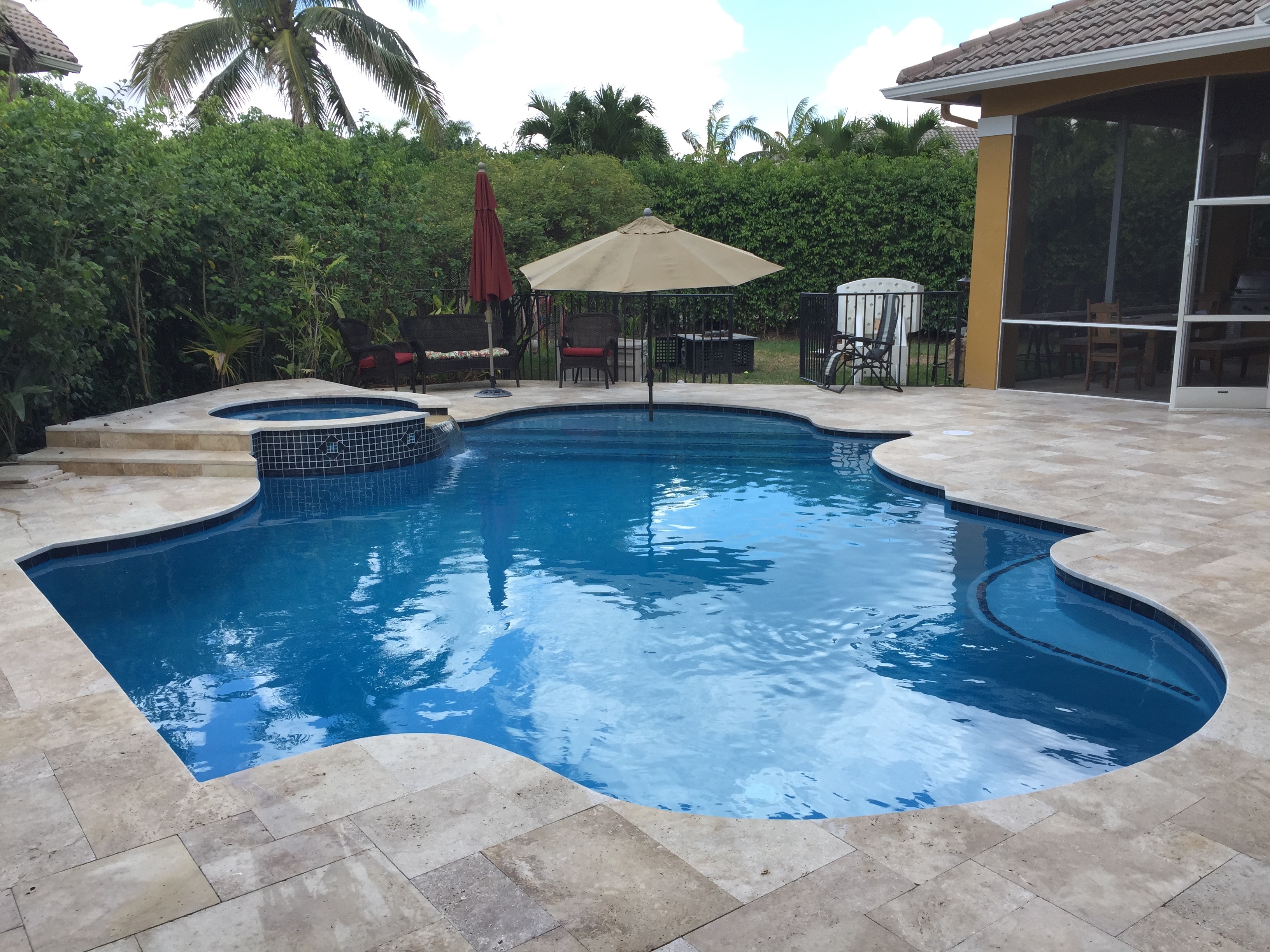Follow these simple steps to get your new pool ready:
Make sure the filtration system is operational.
Based on temperature and type of finish, fill the pool to the middle of the skimmer or specified water level without interruption and as rapidly as possible with clean water, to help prevent a bowl ring.
Be sure to place the hose in the deepest area with a clean rag on the end to prevent damage to the surface material.
Start the filtration system immediately when the pool is filled to the middle of the skimmer or specified water level.
Your local water supply may be acidic, murky, extremely hard or even cloudy. Once your pool is full, test the water using your test kit or test strips to get a good idea of what you’ll be working with.
Test the pool in multiple spots, at least 600mm – 900mm below the surface to make sure the readings are right. In addition:
At no time should any person or pets be allowed in the pool during the fill
To prevent streaking, do not allow any external sources of water to enter the pool
Do not swim in the pool until the water is properly balanced
Test the water for:
pH
Alkalinity
Calcium hardness
Metals.
IMPORTANT NOTE: ALWAYS ADD THE CHEMICAL TO THE WATER, NEVER WATER TO THE CHEMICAL.
The first couple of weeks after starting up your pool is the time to make sure everything is running right. You will need to check your water readings more often in the beginning.
Test the pool water and balance it to the recommended levels below as soon as the pool is filled:
pH: 7.2 – 7.8 (ideally 7.4)
Total Alkalinity (TA): 100 – 200ppm (ideally 120)
Calcium Hardness (CH): 200 – 300ppm (ideally 250)
Free Chlorine: 2 – 3ppm
Cyanuric Acid (CYA): 30 – 50ppm
Be sure to:
Allow some time for the water to balance out
Take it slow and add only one chemical at a time
Allow for one full turnover (usually 12 hours) before re-testing and make another adjustment if needed
Addressing pH in Your Pool
The first thing you need to address is the pH of the pool. If your pH is out of range, nothing you add to your pool will work efficiently, including chlorine. The balance of your pool water depends on proper pH to function correctly. pH directly affects a whole variety of factors, and a good pH falls within a narrow band of 7.2 – 7.6. Follow the recommended amount (based on your pool volume size), add the amount you need and then re-test after the one full turnover (usually 12 hours).
Sanitising Your Pool
The next start-up chemical you will need is sanitiser, the most common of which is chlorine. Chlorine comes in many easy-to-use forms – solid tablets, liquid and granules – and is available from several retail outlets. A saltwater chlorinator is another very popular option for automatic chlorine production, as it is, in effect, a mini chlorine gas factory.
At first you’ll add chlorine in what’s called “shock” levels – an extra heavy dose to start your pool off. A shock dose coupled with extra circulation will ensure that all the water gets treated properly in the beginning. Keep swimmers out of the pool while shocking, as chlorine at elevated levels can irritate mucous membranes and cause general discomfort. Ensure all equipment like pool cleaners and pool covers are removed during this process.
Addressing Alkalinity in Your Pool
Now it’s time to keep the water hardness in check, otherwise known as alkalinity. Think of pH as an air conditioner that cools your home and alkalinity is the thermostat that adjusts your temperature. The two are linked, meaning one changes with the other. Alkalinity is important since water that is too hard negatively affects your pool pump seals, o-rings, jet nozzles and immersed equipment.
Lastly, make sure you add some algaecide for good measure. Most people think algaecide is only for when you see algae. However, it should also be used as a preventative treatment. Use an algaecide before you have a need for it, and keep the nasties at bay.



